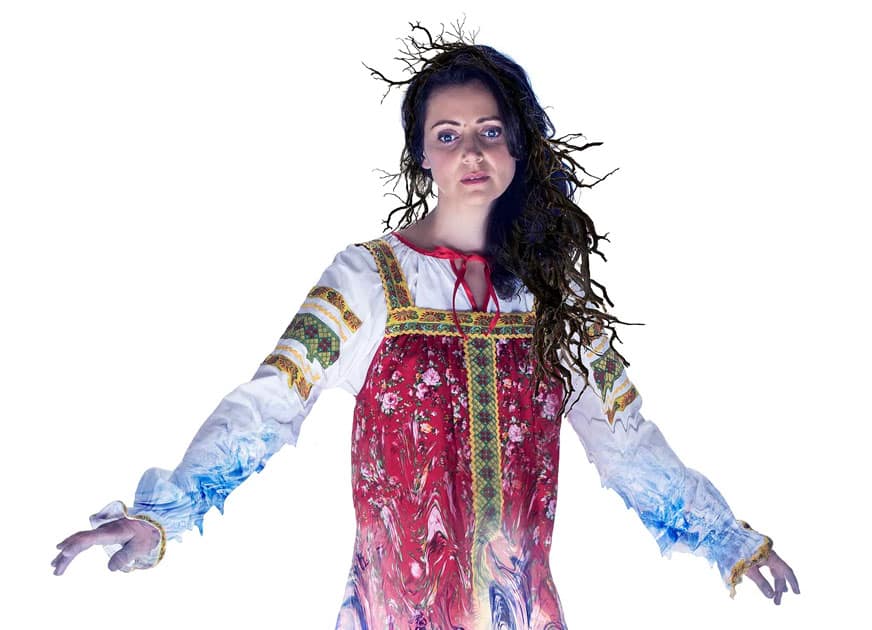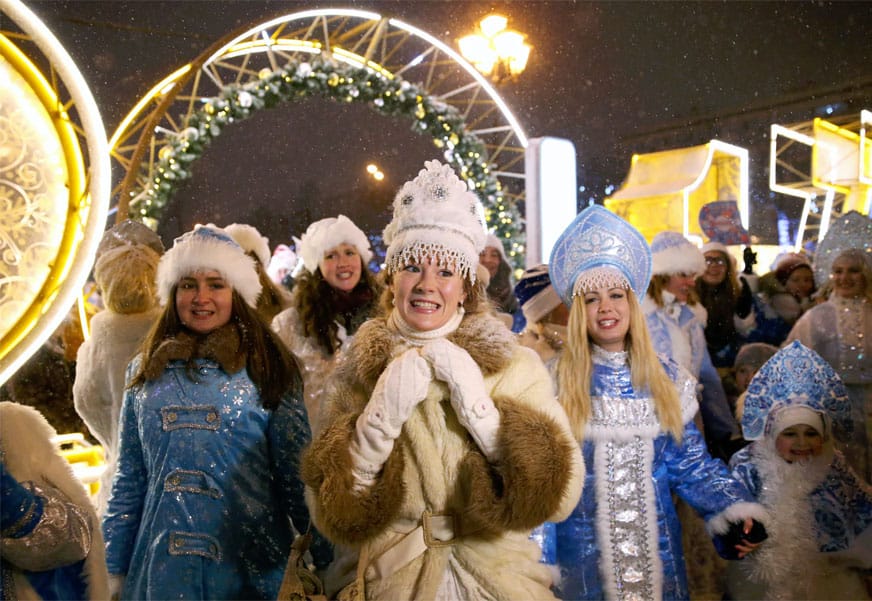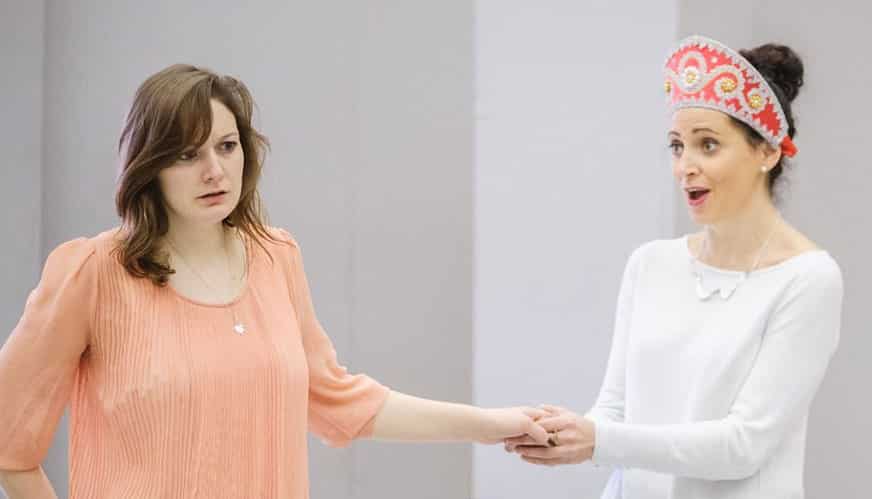
This beautiful film is based on Nikolai Rimsky-Korsakov’s much loved opera, which in turn takes its story (based on a Russian fairytale) from Alexander Ostrovsky’s 1873 play.
The Snow Maiden is a teenage girl with a heart of ice whose very existence offends the Sun-God. Only when she learns to love, as her heart melts, will the Sun-God be appeased and so bring about the arrival of summer. Like so many folk mythologies, it’s a tale of a rite of passage to adulthood but also a myth about sacrifice enabling fertility. It’s the universal myth of the Rite of Spring, which has long fascinated artists from Hans Christian Andersen to Igor Stravinsky. It is also an example of opera’s recurring fascination with the person – usually a woman – who finds a love so strong that they are willing to die for it. That’s at the heart of La Traviata and La Bohème. The story also has much in common with A Midsummer Night’s Dream, the great English celebration of the coming of summer and the rekindling of love.
But The Snow Maiden is also a great nationalist opera – the sacrifice of the girl is demanded by the Tsar to ensure healthy harvests for the whole nation. Rimsky-Korsakov’s opera premiered in 1882 – a time when emerging nations across Europe were using their opera houses to construct and celebrate national identities. Theatre artists and musicians were active contributors to debates around identity. Opera combined stirring choral music with historical or mythological subjects to place the nation on stage.
In that age of nationalism, opera became a communal art form, engaging with fundamental questions about what unites us and what matters to us. Opera’s greatest titans, Verdi and Wagner, wrote works that created the myths and anthems around which new nations could coalesce. Opera can still have that function today, but only if everyone is invited to see their stories on stage.

The Snow Maiden was written at a time of Russian nationalism and is moored in Russian culture, rituals and customs. If we presented it in Leeds in the same way as it is staged at Christmas in Moscow it would seem nostalgic for a world which never really existed. So instead we are trying to get to the heart of the myth to uncover what it says about the tortuous path to adulthood, about the agony and ecstasy of first love, about weddings, marriages and the miracle of new life.
Alasdair Middleton has translated the text into English, replacing some of the original’s folksiness with a tighter focus on the feelings of teenagers falling in love for the first time. Snow Maiden herself is transformed from the magical fairy of the original into a 15-year-old struggling with and eventually overcoming emotional repression. This works because opera speaks a universal language – and because growing up in Russia is not so different from growing up in Yorkshire.
Opera is an art form that has defined itself around a narrow European canon. And yet despite this, the most international theatres in the UK are probably opera companies. The art form that triumphed in the age of nationalism has been transformed into a great form of international exchange. Last autumn, the South African Isango Ensemble brought to London A Man of Good Hope, an opera based on the story of a migrant’s journey across the national and cultural barriers that divide Africa. Music was the most powerful way to represent the worlds through which the boy passed and to allow the audience to connect directly with a story that affects us all. Music is a passport, it transcends borders.
Combining the universal power of music with the political and narrative power of theatre, opera has the potential to be the art form of our global age. But first we must reassess the boundaries of the canon and how we bring it to life in a multinational and multilingual world. Not only do we need to look far wider for the artists and stories of opera’s future, we also need to make tough choices about which works still speak to us and how best to perform them. Puccini’s masterpieces, for instance, offer so much that is universal but it is surely no longer possible to perform Madama Butterfly or Turandot without questioning the composer’s perspective on race. We need to translate for today.

Today, any notion of national culture is far more complex than it was a century ago. Manchester United tracksuits are fashion statements in Siberia and you can buy authentic Russian folk costumes in Leeds. Almost every major European city is full of people from across the world (more than 170 languages are spoken in Leeds alone). We need to engage with this new reality and look with genuine curiosity at the world around us, or risk retreating into an imagined nostalgia. And we need that curiosity now more than ever as we seek to navigate the seismic economic, political and cultural shifts ahead. We need artists and culture that builds connections within and between communities.
There is huge value in finding resonance in culture that has survived and thrived over centuries. This is what Alasdair Middleton has done in his new translation of The Snow Maiden, which speaks with the freshness of a musical rather than the pastoral of grand opera. Similarly radical re-authorings of classic texts are happening regularly in theatre to ensure that our stages represent our communities. And it is happening in ballet, as Akram Khan’s brilliant reimagining of Giselle, set amid a contemporary world of migrant workers, last year illustrated. If it happens in opera, we will release four centuries of cultural treasures, all created in such different contexts from our own but with so much to offer to us as citizens of the world today.
Comments
Add comment